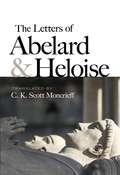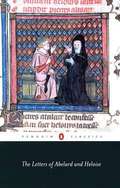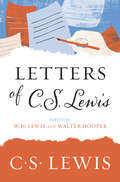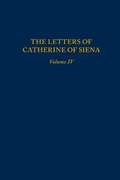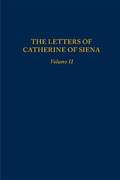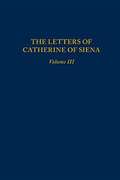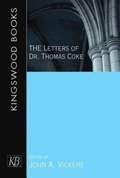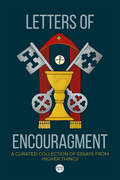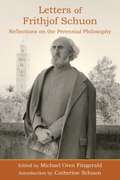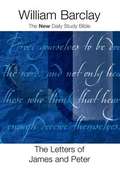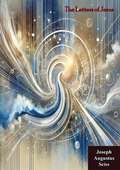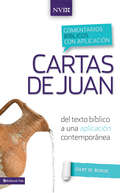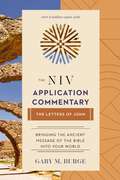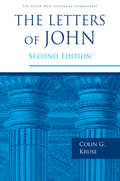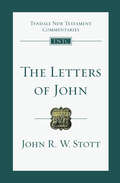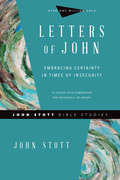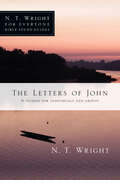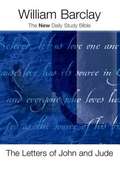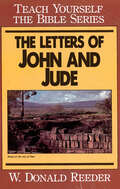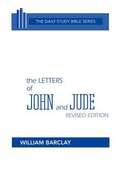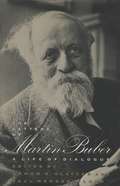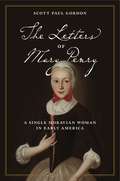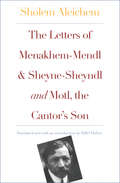- Table View
- List View
The Letters of Abelard and Heloise
by C. K. MoncrieffAbelard, a prominent twelfth-century theologian, is hired to tutor Heloise, a brilliant pupil who becomes his lover and the mother of his child. Although the two are secretly married, a misunderstanding leads to Abelard's castration by Heloise's uncle, followed by the lovers' permanent separation. Abelard retreats to a monastery and Heloise to a nunnery — and their subsequent correspondence captured the romantic imaginations of generations of readers. The letters offer insights into the thinking of Abelard, who ranks among the Middle Ages' foremost philosophers, and the spirited determination of Heloise, an early feminist. They have also excited ongoing controversy in terms of their historical content and significance. Translator C. K. Scott Moncrieff takes a modern approach to the correspondence, adding new significance to its reflection of medieval attitudes toward love, marriage, and religion.
The Letters of Abelard and Heloise
by Betty Radice M. T. ClanchyThe story of the relationship between Abelard and Heloise is told through the letters of Peter Abelard, a French philosopher and one of the greatest logicians of the twelfth century, and of his gifted pupil Heloise. Through their impassioned writings unfolds the story of a romance, from its reckless, ecstatic beginnings through to public scandal, an enforced marriage and its devastating consequences. They also offer insight into religious life in the Middle Ages. This is the revised edition of Betty Radice's translation, in which Michael Clanchy, the biographer of Abelard, updates the scholarship on the letters and the lovers. This volume includes Abelard's autobiography and his spiritual advice to Heloise and her nuns, as well as a selection of the 'lost love letters' of Abelard and Heloise, letters between Heloise and Peter the Venerable, two of Abelard's hymns, a chronology, notes and maps.
Letters of C. S. Lewis
by C. S. LewisA repackaged edition of the revered author’s collection of personal letters—a curated selection of the best of his correspondence with family, friends, and fans—and a short biography by his brother Warren Lewis.Letters of C. S. Lewis reveals the most intimate beliefs of the great British writer, scholar, lay theologian, broadcaster, Christian apologist, and bestselling author of Mere Christianity, The Screwtape Letters, The Great Divorce, The Chronicles of Narnia, and many other beloved classics. Written to friends, family, and fans at various stages in his life, from his youth to the weeks before his death, these letters illuminate Lewis’s thoughts on God, humanity, nature, and creativity. In this captivating collection, devotees will discover details about Lewis’s conversion from atheism to Christianity as well as his philosophical thoughts on spirituality and personal faith.
The Letters of Catherine of Siena (Volume #4)
by Catherine Of SienaThe final volume in the letters of this medieval saint, the first woman declared a Doctor of the Church. Translated, with notes and introduction, by Suzanne Noffke.
The Letters of Catherine of Siena (Volume #2)
by Catherine Of SienaThe second volume takes up Catherine's (1347-80) letters in February 1376, as she is making plans for her mission to the pope in Avignon. They continue through that trip to Florence and Avignon and back, time back in Siena and Belcaro, and her mission to the Val D'Orcia, and end in November or December 1377. Each chronological section and each letter itself is introduced, often at some length. An appendix identifies people she mentions or are mentioned in the introductions, and refers by number to all the letters in the volume that mentions them. Translation, notes and introduction by Suzanne Noffke.
The Letters of Catherine of Siena (Volume #3)
by Catherine Of SienaTranslation, notes and introduction by Suzanne Noffke.
The Letters of Dr. Thomas Coke
by John A. VickersFor forty years on either side of the death of John Wesley in 1791, Thomas Coke was a key figure in the development of Methodism on both sides of the Atlantic. His surviving correspondence is the most personal evidence he has left us of a man who "wore his heart on his sleeve." Coke's letters also give us contemporary insight into some of the events which began the transformation of an evangelical movement into a worldwide communion of Churches. This critical edition gives a comparison to earlier editions, as well as references to names and locations for historical study.
Letters of Encouragement: A Curated Collection of Essays from Higher Things
by A Curated Collection of Essays From Higher ThingsThis book is a collection of letters from pastors and professors of theology meant to encourage young men who either desire to be pastors or are interested in theology and want to learn more. Each letter is a topic in theology that either relates to the Office of the Holy Ministry or is a doctrinal topic that is helpful for all Christians to know.
Letters of Frithjof Schuon: Reflections on the Perennial Philosophy
by Frithjof SchuonThis collection of letters by Frithjof Schuon, the foremost spokesman of the perennial philosophy, contains nearly 200 newly translated letters from Schuon&’s youth to old age as written to friends, spiritual seekers, scholars, and others. Among the letters are those that address, in a simpler and more accessible manner, the same metaphysical subjects that continually recur in Schuon&’s published works. Other letters relate to the spiritual life in its simple and concrete aspects, by answering such fundamental questions as &“Why is there evil in the world?&”, &“How can I recognize if I am on a wrong path?&”, and &“What should I do to be saved?&” Finally, there are letters that relate to various aspects of Schuon&’s life, most of which were written to his closest friends. While not a comprehensive autobiography, these letters offer an intimate view of certain key moments in his life. Taken as a whole, the present collection of letters offers insights into the content of Frithjof Schuon&’s message—his exposition of the perennial philosophy—as well as a glimpse into his life as messenger of that philosophy.
The Letters of James and Peter: The New Daily Study Bible
by William BarclayNOW IN AN ENLARGED PRINT EDITION! Though located in the back part of the New Testament canon, these letters are nonetheless vitally important. As with all of his writings, William Barclay combines both his charm of style and his thoroughgoing scholarship in this volume. For almost fifty years and for millions of readers, the Daily Study Bible commentaries have been the ideal help for both devotional and serious Bible study. Now, with the release of the New Daily Study Bible, a new generation will appreciate the wisdom of William Barclay. With clarification of less familiar illustrations and inclusion of more contemporary language, the New Daily Study Bible will continue to help individuals and groups discover what the message of the New Testament really means for their lives.
The Letters of Jesus
by Joseph Augustus SeissThe Letters of Jesus by Joseph Augustus Seiss is a profound and insightful exploration of the seven letters addressed to the churches in the Book of Revelation. Seiss, a distinguished theologian and scholar, delves into these messages from Christ to the early Christian communities, offering readers a deep understanding of their spiritual significance and timeless relevance.In this illuminating work, Seiss carefully analyzes each of the seven letters found in Revelation chapters 2 and 3, uncovering the rich symbolism, theological depth, and practical guidance contained within Christ’s words. He explores the historical context of the letters, the specific challenges faced by the early churches, and the spiritual lessons that these letters impart to believers today.Seiss' exposition is both scholarly and devotional, blending rigorous biblical interpretation with heartfelt spiritual application. He highlights how these letters, though written to specific churches in the first century, convey universal truths about faith, perseverance, repentance, and the nature of true Christian discipleship. Each letter is examined in detail, revealing the encouragement, rebuke, and promises that Jesus offers to His followers.The Letters of Jesus serves as a guide for individual believers and church communities alike, encouraging a deeper reflection on Christ’s words and a more faithful response to His call. Seiss’ writing is both accessible and profound, making this book suitable for both scholars and lay readers seeking to enrich their understanding of Scripture.This book is essential reading for anyone interested in the Book of Revelation, early Christian history, or the teachings of Jesus. The Letters of Jesus provides timeless wisdom for navigating the challenges of faith and offers a powerful reminder of Christ’s enduring presence and guidance for His Church.Joseph Augustus Seiss’ work continues to inspire and instruct, helping readers to connect with the divine messages that have shaped the Christian faith for centuries. Through The Letters of Jesus, believers are invited to hear afresh the voice of Christ calling them to a deeper, more committed walk with God.
The Letters of John
by Gary M. BurgeMost Bible commentaries take us on a one-way trip from the twentieth century to the first century. But they leave us there, assuming that we can somehow make the return journey on our own. In other words, they focus on the original meaning of the passage but don't discuss its contemporary application. The information they offer is valuable--but the job is only half done! The NIV Application Commentary Series helps us with both halves of the interpretive task. This new and unique series shows readers how to bring an ancient message into modern context. It explains not only what the Bible means but also how it can speak powerfully today.
The Letters of John (The NIV Application Commentary)
by null Gary M. BurgeThe NIV Application Commentary helps you communicate and apply biblical text effectively in today's context.John weaves together themes of light and darkness, falsehood and truth, and what it means to be children of God in community. He explores the theme of love as central to God's nature and thus as the defining characteristic of those who follow him. The Letters of John teach us about handling conflict, discerning orthodox belief, and measuring Christian conduct. Gary Burge shares perspectives on John's letters that reveal their enduring relevance for our twenty-first-century lives. To bring the ancient messages of the Bible into today's context, each passage is treated in three sections:Original Meaning. Concise exegesis to help readers understand the original meaning of the biblical text in its historical, literary, and cultural context.Bridging Contexts. A bridge between the world of the Bible and the world of today, built by discerning what is timeless in the timely pages of the Bible.Contemporary Significance. This section identifies comparable situations to those faced in the Bible and explores relevant application of the biblical messages. The author alerts the readers of problems they may encounter when seeking to apply the passage and helps them think through the issues involved.This unique, award-winning commentary is the ideal resource for today's preachers, teachers, and serious students of the Bible, giving them the tools, ideas, and insights they need to communicate God's Word with the same powerful impact it had when it was first written.
The Letters of John (The Pillar New Testament Commentary (PNTC))
by Colin G. KruseBased on the latest text of the NIV, this updated commentary reflects the most current scholarship.This updated and revised Pillar commentary seeks to clearly explain the meaning of the letters of John to teachers, pastors, and general readers looking for a reliable and trusted resource for personal study. Colin Kruse introduces the important issues involved in interpreting the Johannine letters, gives verse-by-verse comments, and provides extensive discussion of major theological themes, including the real humanity of Christ, atonement, the role of the Spirit, Christian assurance, koinōnia, Christian love, and eternal life. The Pillar New Testament Commentary, designed for serious readers of the Bible, seeks above all to make clear the meaning of the text of Scripture as we have it. Writers of the PNTC volumes interact with the most important, informed contemporary debate yet avoid undue technical detail. Their ideal is a blend of rigorous exegesis and exposition, scholarship and pastoral sensitivity, with an eye alert both to biblical theology and to the contemporary relevance of the Bible.
The Letters of John (The Pillar New Testament Commentary (PNTC))
by Colin G. KruseBased on the latest text of the NIV, this updated commentary reflects the most current scholarship.This updated and revised Pillar commentary seeks to clearly explain the meaning of the letters of John to teachers, pastors, and general readers looking for a reliable and trusted resource for personal study. Colin Kruse introduces the important issues involved in interpreting the Johannine letters, gives verse-by-verse comments, and provides extensive discussion of major theological themes, including the real humanity of Christ, atonement, the role of the Spirit, Christian assurance, koinōnia, Christian love, and eternal life. The Pillar New Testament Commentary, designed for serious readers of the Bible, seeks above all to make clear the meaning of the text of Scripture as we have it. Writers of the PNTC volumes interact with the most important, informed contemporary debate yet avoid undue technical detail. Their ideal is a blend of rigorous exegesis and exposition, scholarship and pastoral sensitivity, with an eye alert both to biblical theology and to the contemporary relevance of the Bible.
The Letters of John: An Introduction and Commentary (Tyndale New Testament Commentaries #Volume 19)
by John Stott"John evidently loves the people committed to his care," says John Stott in the preface to this commentary on 1, 2 and 3 John. "They are his 'dear children,' his 'dear friends.' He longs to protect them from both error and evil and to see them firmly established in faith, love and holiness. He has no new doctrine for them. On the contrary, he appeals to them to remember what they already know, have and are. He warns them against deviating from this and urges them to remain loyal to it. Whenever innovators trouble the church, and ridicule whatever is old or traditional, we need to hear and heed John's exhortation, to continue in what we have learned and received, and to let it continue in us." The Tyndale New Testament Commentaries have long been a trusted resource for Bible study. Written by some of the world's most distinguished evangelical scholars, these twenty volumes offer clear, reliable, and relevant explanations of every book in the New Testament. These Tyndale volumes are designed to help readers understand what the Bible actually says and what it means. The introduction to each volume gives a concise but thorough description of the authorship, date, and historical background of the biblical book under consideration. The commentary itself examines the text section by section, drawing out its main themes. It also comments on individual verses and deals with problems of interpretation. The aim throughout is to get at the true meaning of the Bible and to make its message plain to readers today. The original, unrevised text of this volume has been completely retypeset and printed in a larger, more attractive format with the new cover design for the series
Letters of John: Embracing Certainty in Times of Insecurity (John Stott Bible Studies)
by John StottWe live in times of insecurity.
The Letters of John: 9 Studies For Individuals Or Groups (N. T. Wright for Everyone Bible Study Guides)
by N. T. WrightIn his letters, John expresses delight at believers who are "walking in the truth": behaving with that integrity which reflects the gospel. This involves not just correct doctrine and proper outward behavior, but also love for God and fellow believers. It's this love, John writes, that shows that the truth of the gospel has really been grasped, not as an abstract idea but as what it is, the very life of God himself at work in his people. These nine studies from Tom Wright help us become believers who are "walking in the truth" in our own day--people in whom the very life of God is at work for all to see.
The Letters of John and Jude: The New Daily Study Bible
by William BarclayNOW IN AN ENLARGED PRINT EDITION! The letters of John and Jude deal with heretical teachings within the early church. Here William Barclay uses his characteristically approachable writing style to offer fresh translations and compelling commentary on these texts. For almost fifty years and for millions of readers, the Daily Study Bible commentaries have been the ideal help for both devotional and serious Bible study. Now, with the release of the New Daily Study Bible, a new generation will appreciate the wisdom of William Barclay. With clarification of less familiar illustrations and inclusion of more contemporary language, the New Daily Study Bible will continue to help individuals and groups discover what the message of the New Testament really means for their lives.
Letters of John and Jude- Teach Yourself the Bible Series (Teach Yourself the Bible)
by Donald ReederThe Teach Yourself the Bible Series is one of the best New Testament studies you will find anywhere. Each book in the series is packed full of valuable questions on individual chapters of the Bible, check-ups to test your grasp of scriptural truths, and usable suggestions for group study.Grow in your knowledge of God through each New Testament book, then go on to study six aspects of Christianity essential for all believers: doctrine, prayer, eternal life, prophecy, Christian character, and Bible study.The early church struggled with false teachers, heresy, and intrachurch personality problems. The Letters of John and Jude is a look at these four epistles addressed to members of the early church whose problems were similar to ones we face today.Strengthen your relationship with the living God with all twenty-five books of the Teach Yourself the Bible Series. Each volume is a timeless, yet practical, study of the Word of God.
The Letters of John and Jude (The Daily Study Bible Revised Edition)
by William BarclayCommentary on the three letters of John and the Letter of Jude.
The Letters of Martin Buber
by Martin Buber"No matter how brilliant it may be, the human intellect that wishes to keep to a plane above the events of the day is not really alive," wrote Martin Buber in 1932. The correspondence of Martin Buber reveals a personality passionately involved in all the cultural and political events of his day. Drawn from the three-volume German edition of his correspondence, this collection includes letters both to and from the leading personalities of his day--Albert Einstein and Albert Schweitzer, Hemann Hesse, Franz Kafka, and Stefan Zweig, Theodor Herzl, Chaim Weizmann, David Ben-Gurion, S.Y. Agnon, Gershom Scholem, and Franz Rosenzweig. These exchanges capture the dynamics of seven decades of lived history, reflected through the eyes of a man who was the conscience of his generation. One of the leading spiritual thinkers of the twentieth century, Buber is best known for his work of religious existentialism, I and Thou. A prime mover in the German-Jewish renaissance of the 1920s, he taught comparative religion and Jewish ethics at the University of Frankfurt. Fleeing the Nazis in 1938, Buber made his home in Jerusalem, where he taught social philosophy at the Hebrew University. As resident sage of Jerusalem, he developed an international reputation and following, and carried on a vigorous correspondence on social, political, and religious issues until the end of his life. Included in this collection are Buber's exchanges with many Americans in the latter part of his life: Will Herberg, Walter Kaufmann, Maurice Friedman, Malcolm Diamond, and other individuals who sought his advice and guidance. In the voices of these letters, a full-blooded portrait emerges of a towering intellect ever striving to live up to philosophy of social engagement.
The Letters of Mary Penry: A Single Moravian Woman in Early America (Pietist, Moravian, and Anabaptist Studies #4)
by Scott Paul GordonIn The Letters of Mary Penry, Scott Paul Gordon provides unprecedented access to the intimate world of a Moravian single sister. This vast collection of letters—compiled, transcribed, and annotated by Gordon—introduces readers to an unmarried woman who worked, worshiped, and wrote about her experience living in Moravian religious communities at the time of the American Revolution and early republic. Penry, a Welsh immigrant and a convert to the Moravian faith, was well connected in both the international Moravian community and the state of Pennsylvania. She counted among her acquaintances Elizabeth Sandwith Drinker and Hannah Callender Sansom, two American women whose writings have also been preserved, in addition to members of some of the most prominent families in Philadelphia, such as the Shippens, the Franklins, and the Rushes. This collection brings together more than seventy of Penry’s letters, few of which have been previously published. Gordon’s introduction provides a useful context for understanding the letters and the unique woman who wrote them. This collection of Penry’s letters broadens perspectives on early America and the eighteenth-century Moravian Church by providing a sustained look at the spiritual and social life of a single woman at a time when singleness was extraordinarily rare. It also makes an important contribution to the recovery of women’s voices in early America, amplifying views on politics, religion, and social networks from a time when few women’s perspectives on these subjects have been preserved.
The Letters of Mary Penry: A Single Moravian Woman in Early America (Pietist, Moravian, and Anabaptist Studies)
by Scott Paul GordonIn The Letters of Mary Penry, Scott Paul Gordon provides unprecedented access to the intimate world of a Moravian single sister. This vast collection of letters—compiled, transcribed, and annotated by Gordon—introduces readers to an unmarried woman who worked, worshiped, and wrote about her experience living in Moravian religious communities at the time of the American Revolution and early republic. Penry, a Welsh immigrant and a convert to the Moravian faith, was well connected in both the international Moravian community and the state of Pennsylvania. She counted among her acquaintances Elizabeth Sandwith Drinker and Hannah Callender Sansom, two American women whose writings have also been preserved, in addition to members of some of the most prominent families in Philadelphia, such as the Shippens, the Franklins, and the Rushes. This collection brings together more than seventy of Penry’s letters, few of which have been previously published. Gordon’s introduction provides a useful context for understanding the letters and the unique woman who wrote them. This collection of Penry’s letters broadens perspectives on early America and the eighteenth-century Moravian Church by providing a sustained look at the spiritual and social life of a single woman at a time when singleness was extraordinarily rare. It also makes an important contribution to the recovery of women’s voices in early America, amplifying views on politics, religion, and social networks from a time when few women’s perspectives on these subjects have been preserved.
The Letters of Menakhem-Mendl and Sheyne-Sheyndl; and Motl, the Cantor's Son
by Hillel Halkin Sholem AleichemThis volume presents an outstanding new translation of two favorite comic novels by the preeminent Yiddish writer Sholem Aleichem (1859–1916). The Letters of Menakhem Mendl and Sheyne Sheyndl portrays a tumultuous marriage through letters exchanged between the title character, an itinerant bumbler seeking his fortune in the cities of Russia before departing alone for the New World, and his scolding wife, who becomes increasingly fearful, jealous, and mystified. Motl, Peysi the Cantor’s Son is the first-person narrative of a mischievous and keenly observant boy who emigrates with his family from Russia to America. The final third of the story takes place in New York, making this Aleichem’s only major work to be set in the United States. Motl and Menakhem Mendl are in one sense opposites: the one a clear-eyed child and the other a pathetically deluded adult. Yet both are ideal conveyors of the comic disparity of perception on which humor depends. If Motl sees more than do others around him, Menakhem Mendl has an almost infinite capacity for seeing less. Aleichem endows each character with an individual comic voice to tell in his own way the story of the collapse of traditional Jewish life in modern industrial society as well as the journey to America, where a new chapter of Jewish history begins. This volume includes a biographical and critical introduction as well as a useful glossary for English language readers.
